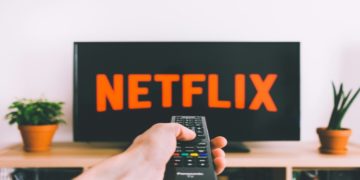You hardly ever see breaking news in a printed newspaper now. In the UK, news habits are veering sharply toward social media and video, leaving old-school outlets in the shadow. Millions rely first on algorithmic feeds, AI-suggested headlines, or platforms buzzing with what’s trending right this second. All this has forced industries like online gambling to trail behind newsrooms, especially if they want any chance of reaching viewers who are glued to their screens.
It’s a bit of a double bind for the casino world: the audience is much bigger, but so are the headaches. Instant fame or sudden backlash can hit within minutes, and stories, true or not, spread before anyone can step in. The UK’s gambling sector has dived deepest into digital, yet even it struggles to steer these wild, unpredictable trends.
Social media and video leading the shift
More and more people in the UK catch up with the news on their phones, swiping through video clips or posts shared on social media. Roughly 20% of adults now say social networks are their main news source; among those between 18 and 34, that number shoots up to 38%, according to the latest YouGov Digital News Report. It’s TikTok, Instagram, YouTube, and big news apps pushing stories into feeds, far beyond what print or TV ever managed.
Instead of old-fashioned reporting, you find trending hashtags, viral challenges, and eye-catching thumbnails. Because of this, a whole new audience comes across updates on gambling legislation, warnings about addiction, and every hot take on gambling regulation. For the online casino industry, the struggle is all about capturing attention at the right moment. News might take off in seconds, but facts and background don’t always keep up. In a stream where headlines change by the minute, reaction comes almost instantly. There’s no real breathing room for the subtleties behind big casino stories.
Algorithmic feeds, news curation, and the spread of misinformation
The big names distributing news, Meta, Google, X, now make most of their decisions based on algorithms. According to research on UK media consumption, about 65% of people come across news through what’s recommended or currently trending. Editorial choices have faded into the background. These days, a debate on slot machine safety or a sudden regulatory rumour might catch fire for a short while, gain traction, then quickly disappear without warning.
It gets trickier given that news about online casino activity often first appears from generalist writers or through AI-written news briefs. All the while, the risks get starker. The Media Reform Coalition, for example, has pointed out that roughly one in two AI-generated gambling stories miss the mark or carry outright errors. PR and compliance teams in gambling companies are working overtime, reacting not just to published pieces but to swirling online chatter, sometimes correcting errors before journalists address the issues. False reports, or misunderstandings, now travel faster than anyone can contain them.
Greater reach, less certainty
The rise of digital news means casino topics can suddenly hit vast audiences, but how those stories are told is getting harder to predict. It’s clear that people, those most likely to bet online, are frequently bombarded with trending videos, quick takes, and influencer opinions, with accuracy often taking a back seat. Updates from the Gambling Commission, stories on regulatory fines, and occasional tales of sizeable outcomes have the potential to get enormous attention in no time at all.
Still, there’s a downside, algorithmic quirks can edge out thorough or independent reporting, making space for dramatic or sensational pieces to grab the limelight. Public relations teams are forced to act fast, and compliance officers need to keep eyes everywhere. Official responses from regulators or big companies may lag well behind online reaction, with public opinion already shaped by the time anyone in authority comes back with answers. In effect, permanent digital vigilance is now the baseline for the industry.
Industry responses and digital adaptation
Casino operators and trade bodies aren’t sitting idly by. Budgets for digital PR have grown, and there’s more collaboration with influencers and creators, as well as paid features or explainers made for YouTube and other networks. Compliance managers now often rely on live monitoring platforms, giving them a heads-up about viral stories or misinformation before a narrative spirals out of control.
Fast-fire corrections, clarifying follow-ups, and direct replies under social posts have all become pretty common. The online gaming sector in the UK, quick to change and experiment, sets the pace; new features, payment updates, and player protection tools will frequently debut online before any journalist at a newspaper notices. Regulators are taking notice; today, the Gambling Commission is investing more effort into watching digital platforms, preparing to react to media spikes or sudden surges in concern triggered by a misleading post.
Integrity in responsible gambling information
With news now moving at dizzying speed across social and video channels, the need for responsible gambling efforts becomes even more pressing. Verifying information, making things clear upfront, and providing the facts matter more than ever when so much noise is out there. Casino operators, regulators, and industry reps will all need to coordinate sharp messaging and digital engagement that can keep pace.
When so much content is coming at people so quickly, making the right, informed choices depends on finding reliable reporting amid all the clutter. As habits evolve, keeping things transparent and accurate has to stay front and centre. Digital trust could turn out to matter just as much as the strictest licensing. Without it, efforts at safe gambling may start to fall behind.
David Prior
David Prior is the editor of Today News, responsible for the overall editorial strategy. He is an NCTJ-qualified journalist with over 20 years’ experience, and is also editor of the award-winning hyperlocal news title Altrincham Today. His LinkedIn profile is here.











































































